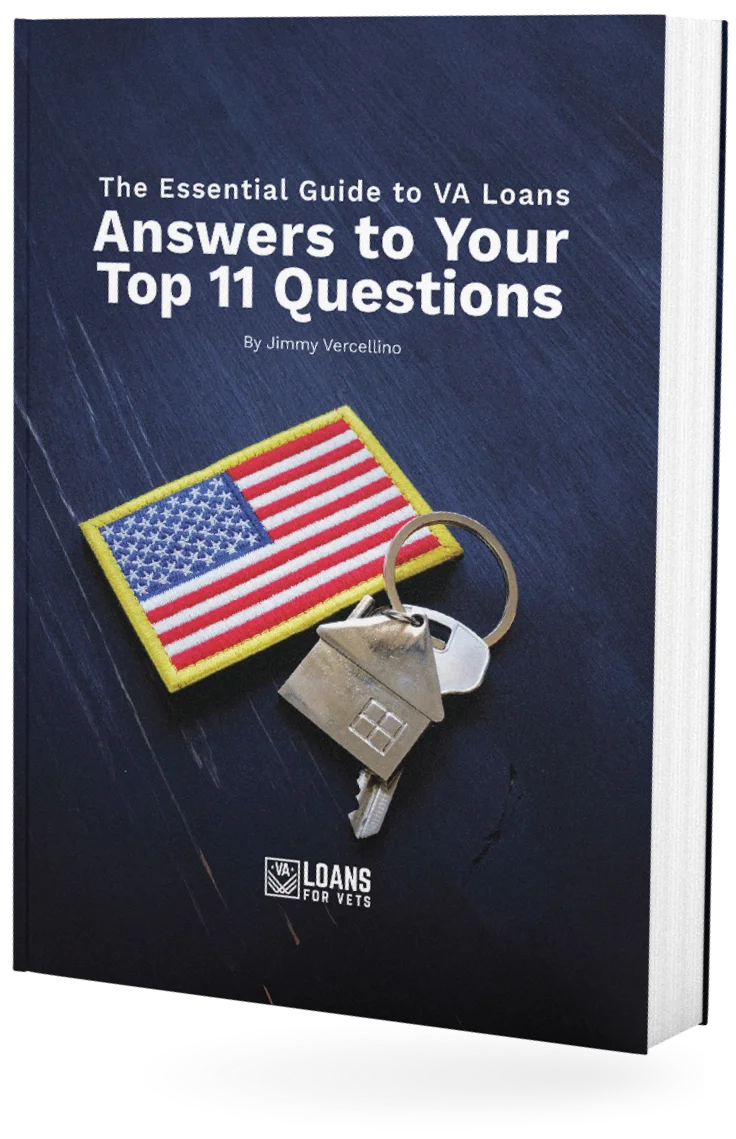The Department of Veterans Affairs, like other federal agencies that back home loans, does not have an inspection requirement for their loans. However, they do require a home loan appraisal, and minimum property requirements, before approving a loan.
Here is what you need to know about appraisals, minimum property requirements, and why it’s still a good idea to have the traditional home inspection before buying a house.
VA Appraisal
VA Appraisals are considered one of the biggest hurdles to buying a home with a VA loan. However, this process isn’t different from an appraisal for a non-VA loan.
When you take out money to buy a house, the lender is taking on a risk. They want to make sure the investment they’re making in your future home is a good investment, and that the sales price is reasonable. If the appraised value of the house is half the loan amount, that’s not a good investment.
Overall, the VA appraisal process can take up to 10 business days.
The VA doesn’t have staff appraisers. Instead, the department contracts with private appraisal businesses across the country. These appraisers are licensed to assess the property’s value and make sure the property is safe for someone to live in.
After the assessor goes out to the problem, they make a report. The appraisal report is uploaded to the VA Website, where a Senior Appraisal Reviewer will review the report. The appraisers may decide whether the home is worth the value being asked for or if the sales price is too high. The real estate agent may be asked to provide comparable houses on the market to justify the sales price.
VA Minimum Property Requirements
In addition to making sure the price of the property meets the assessed value, the VA requires the property meets certain minimum property requirements (MPRs). These are generally minimum requirements that ask whether a property is safe, secure, and sanitary.
These may seem like a lot of items to check, but the primary goal is to keep you, your family, and your home safe for years to come. If a house doesn’t meet these minimums, it probably won’t be a healthy place to grow old in and raise your children.
Let’s look at the requirements of some of these MPRs.
Access and Zoning
The VA will check to make sure you’re actually able to use the property as a home. It will look at the city’s zoning requirements to confirm if the home is in compliance.
It will also make sure that the house is accessible, meaning that the property connects to the public road or a public walkway. You can’t live in a place that you can’t leave without trespassing on someone else’s land.
The appraiser will also make sure that your property doesn’t have any encroachments on other properties, or that other properties don’t encroach on your land.
Space Requirements
The VA requires that a home have sufficient space for living, sleeping, cooking, eating, and appropriate toilet and shower facilities. It doesn’t need every kid to have a private bedroom, but the house needs to be big enough to house your family.
If the home has an accessible attic, the appraiser needs to take a look at it. Similarly, the appraiser will need to check the basement for dampness and structural problems with the property. If there are any crawl spaces in the house, the appraiser will make sure it’s accessible and ventilated.
Electricity, Water, Sewage, and Heat
The appraiser will check for any frayed or exposed electrical wires, and make sure the house has electric lights.
They’ll make sure the house has a safe and clean water supply, including hot water. If the property has well water, rather than a connection to the public water, the appraiser will need to send a water sample to get tested.
The appraiser will check the sewage disposal system to make sure that it’s sanitary and safe, and doesn’t create a public health problem.
The VA requires that homes have a working heating system that can keep the house at least 50 degrees. It doesn’t require that homes have air conditioning, but if it’s installed, it must be working.
Lead-Based Paint
Lead-based paint is a safety hazard. Houses built before 1978 are presumed to have lead-based paint. If the appraiser finds defective lead-based paint in any house, it’s considered a safety hazard. You won’t be able to buy a house with defective lead-based paint until it’s either completely removed, or treated so it won’t flake.
Environmental Conditions
The appraiser will review the environmental conditions of the home to make sure that it’s secure and safe.
The appraiser will make sure there is appropriate water drainage, so that water can’t pool up on the property and cause unsanitary conditions. If the property is in a flood zone, the appraiser will make a note that the home needs to have flood insurance.
The appraiser will check to make sure the soil is stable to support the property, if there’s soil contamination, and that there aren’t any signs of sinkholes on the property.
They also need to look for signs of termites, mold, and dry rot. If the appraiser finds signs of these, any damage needs to be repaired.
The appraiser will review any other potential environmental hazards on the property, like slush pits, underground storage tanks, or chemical contamination. They will check to see if these conditions meet local, state, or federal safety regulations.
Home Inspections Are A Good Idea
Even if the Department of Veterans Affairs doesn’t require a home inspection, it’s usually a good idea to have a separate inspection. Buying a house is a big investment. You don’t want to get stuck with a piece of property that has more problems than it’s worth.
Even though the VA has minimum property requirements, having a proper home inspection will give you a better idea of what problems, if any, the house has before you purchase a home. After all, the appraiser isn’t required to check for every potential problem – they don’t even have to make sure the appliances turn on or check out the water heater.
In your home inspection, you might learn that the house will need a new roof soon, or that there are serious issues with the foundation. These issues might mean this isn’t the house for you, or you may be able to negotiate a lower sales price.
A good home inspection may make the home buying process take longer. But, when you’re making a six-figure investment in a property, you want to be sure this is the right home for you.
Work with a VA Home Loan Specialist
If you’re a veteran looking to buy a house, having the right VA home loan specialist by your side is a must. We will walk you through the entire home loan process, and make sure that your home is safe and comfortable.
We have veterans on our team ready to serve you. You can connect with us online or call our office at (602)-908-5849.



